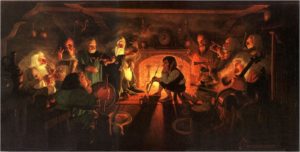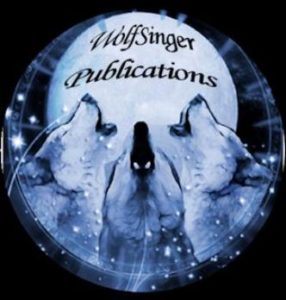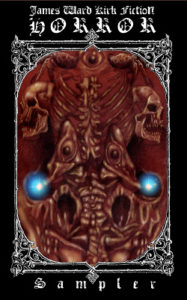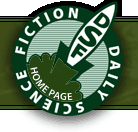For our readers in the United States, everyone at The Fictorians wish you and yours a happy Independence Day on this 4th of July.
Many beginning authors consider worldbuilding as a need to flesh out an entire planet or a continent. They spend countless hours focusing on where to place all of the individual buildings in a city and then coming up with a “cool” name for each area. I went through this phase in the 1970’s and 80’s when I wrote over three hundred Dungeons and Dragons modules for my friends to enjoy every other weekend. I have books filled with individual floor plans for all of the buildings in the capital city of Bali, including the furnishings and who lives and/or works there.
When it comes to worldbuilding for fiction, I prefer to come up with an overall skeleton structure for a particular culture and then let it develop naturally. There’s no need to have a detailed floorplan of the butcher shop next to the tavern unless there’s a reason for the characters to go inside and buy a porkchop. There’s no use in working out the personnel structure of the guards, the gentry, or the street sweepers unless the characters will be interacting with them. By developing the broad strokes as the need arises, it keeps me focused on what is needed for the story at that moment. It also keeps me writing instead of planning nifty things that only I will get to see in dusty old journals that get buried over the years.
If you think about the worlds that you’ve read over the years, there are some that will always stick out in your memory. I’ve found that those worlds do have plenty of broad worldbuilding for the setting, but it’s the little things that really make those worlds come alive in your head. A common example is The Hobbit. We’re set up with a quick explanation of what a hobbit is and that they live in a house built into the side of a hill — and not a nasty, slimy hole filled with the ends of worms and an oozing smell. Tolkien goes on to explain that hobbits love comfort, food, and drink.
 At this point we see Bilbo sitting outside smoking some pipe-weed. This is the kind of small detail that can transform a scene and make it rich and lively. He is enjoying his morning when Gandalf wanders by. Again, the small details about Gandalf’s background are sprinkled generously to immediately capture the attention of the reader, and it’s masterfully done. We want to know more about this wizard and the adventures he’s been on!
At this point we see Bilbo sitting outside smoking some pipe-weed. This is the kind of small detail that can transform a scene and make it rich and lively. He is enjoying his morning when Gandalf wanders by. Again, the small details about Gandalf’s background are sprinkled generously to immediately capture the attention of the reader, and it’s masterfully done. We want to know more about this wizard and the adventures he’s been on!
This is the classic setup for a novel, where the main character is shown enjoying his normal life in their normal world when something comes along and changes everything. This unbalance (usually) gets resolved over the story and the ending shows the protagonist getting used to their “new normal”.
 That beginning spot where Bilbo is puffing away and getting a bit annoyed at Gandalf for butting into his quiet morning, only to be dressed down after Gandalf reads Bilbo the riot act “as if Gandalf was selling buttons at his door”, shows a lot of subtle worldbuilding. We learn a bit more about the culture of the hobbits and, at least at first, that this particular hobbit starts off with a cheerful outlook. When the idea of adventures pop up in conversation we discover that hobbits like being predictable, and that there are no adventurers around Hobbiton. The droplets of culture are helping to build out the world of the Shire without being obtrusive. Instead of handing the reader a laundry list of boring and sometimes unnecessary information, Tolkien slips us small doses that we can consume without getting bored.
That beginning spot where Bilbo is puffing away and getting a bit annoyed at Gandalf for butting into his quiet morning, only to be dressed down after Gandalf reads Bilbo the riot act “as if Gandalf was selling buttons at his door”, shows a lot of subtle worldbuilding. We learn a bit more about the culture of the hobbits and, at least at first, that this particular hobbit starts off with a cheerful outlook. When the idea of adventures pop up in conversation we discover that hobbits like being predictable, and that there are no adventurers around Hobbiton. The droplets of culture are helping to build out the world of the Shire without being obtrusive. Instead of handing the reader a laundry list of boring and sometimes unnecessary information, Tolkien slips us small doses that we can consume without getting bored.
When it’s time to show us the world you’re imagining, consider allowing us to sip from your fountain pen instead of chucking us into a barrel of inky details. The buildup will help us see your vision one image or cultural display at a time.


 Looking at the options, I could spend $125 for each one or, if I purchased in bulk, the price dropped down to a buck each. I decided to buy a thousand-block and founded The Publishing Consortium, which is a cooperative for a bunch of publishing imprints for my friends and my own little personal publisher.
Looking at the options, I could spend $125 for each one or, if I purchased in bulk, the price dropped down to a buck each. I decided to buy a thousand-block and founded The Publishing Consortium, which is a cooperative for a bunch of publishing imprints for my friends and my own little personal publisher.





 You may wonder why I wouldn’t want this to happen. After all, more eyeballs can mean more sales. The problem is that readers of my horror or science fiction titles go in expecting particular tropes and methodologies. Those few folks who go looking for titles under my (real) name want to read something in the “GADM” style. If they see a new book and buy it, they may get a surprise when they start reading an erotic thriller with lots of sexual tension and graphic sex instead of a horror novel with lots of “Dad” jokes and punny humor.
You may wonder why I wouldn’t want this to happen. After all, more eyeballs can mean more sales. The problem is that readers of my horror or science fiction titles go in expecting particular tropes and methodologies. Those few folks who go looking for titles under my (real) name want to read something in the “GADM” style. If they see a new book and buy it, they may get a surprise when they start reading an erotic thriller with lots of sexual tension and graphic sex instead of a horror novel with lots of “Dad” jokes and punny humor. If you’re going to be writing under different pseudonyms, you need to do a solid analysis of your writing style. There are particular phrases and words that crop up with every author, for example. Think about the first three George Lucas Star Wars movies (in theatre release order). How many times have you heard Darth Vader say “is complete”? It drives me nuts when I hear those words, but it’s a Lucasism. Even the scripts he didn’t completely write have his smudgy thumbprints all over the pages.
If you’re going to be writing under different pseudonyms, you need to do a solid analysis of your writing style. There are particular phrases and words that crop up with every author, for example. Think about the first three George Lucas Star Wars movies (in theatre release order). How many times have you heard Darth Vader say “is complete”? It drives me nuts when I hear those words, but it’s a Lucasism. Even the scripts he didn’t completely write have his smudgy thumbprints all over the pages.